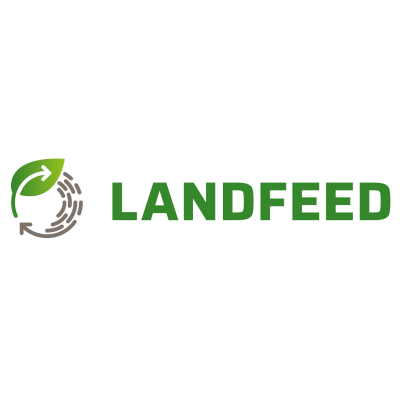
LANDFEED
UNLOCKING EFFICIENT BIO-BASED FERTILISERS FOR SOIL SUSTAINABILITY FROM UNDERUTILISED SIDE STREAMS

UNLOCKING EFFICIENT BIO-BASED FERTILISERS FOR SOIL SUSTAINABILITY FROM UNDERUTILISED SIDE STREAMS
Modern agriculture relies heavily on fertilisers to help plants grow and keep crop yields high. Most of them are however made of non-renewable resources and require energy-intensive production with considerable environmental impacts, which call for a shift towards sustainable practices.
LANDFEED aims to create new bio-based fertilisers by using underutilised waste from the agro-food industry, forestry, as well as urban and natural sources as feedstock. The project will also develop coatings for these bio-based fertilisers to improve nutrient release mechanisms, thus contributing to lower greenhouse gas emissions and reduced impact on water resources.
LANDFEED will ensure that the project’s solutions and results are locally driven through various use cases serving as lighthouses, demonstrating and disseminating project technologies and applications across the value chain. These use cases will contribute to soil health restoration and biodiversity enhancement, aligning with the EU Soil Strategy objectives. Moreover, a global business model will maximise the replicability of these cases, aiding their implementation in other European regions.
A sustainable agricultural strategy requires collaboration between the fertiliser and farming sectors to mobilise underutilised waste streams and transition to renewable nutrients. In this sense, LANDFEED aims to:
LANDFEED’s expected impacts include: